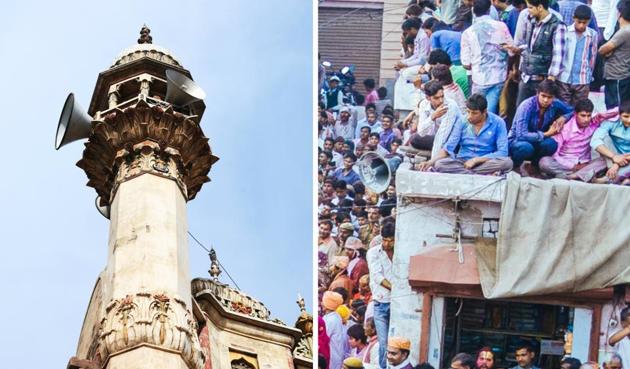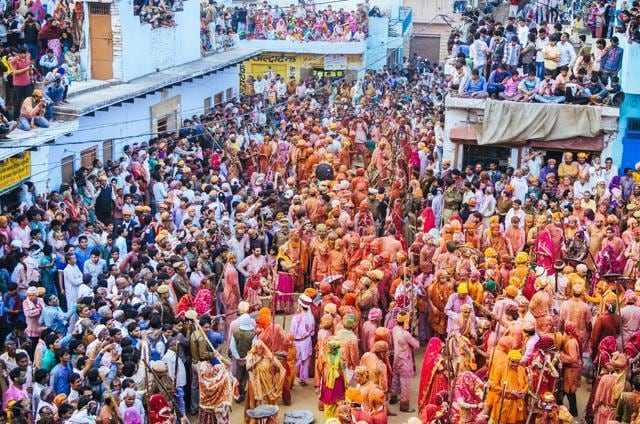#WhatLawSays: Is it legal to use loudspeakers in religious places?
Keeping the recent Azaan debate in mind, in the first of our three-part series, #WhatLawSays, we tell you where does the law stand on using loudspeakers in religious places.
Singer Sonu Nigam started a nationwide debate last week when he tweeted against the use of loudspeakers for the early morning Azaan (the Muslim call for prayer). Since then, netizens have been divided on this controversial issue with celebs, such as, Saif Ali Khan, Javed Akhtar, Shaan, Kailash Kher expressing their opinion on it. But, are we aware what the Indian judiciary has to say about using loudspeakers in public places? We spoke to Supreme Court lawyer Arnav Narain, who delved into this topic to bring you the legal facts.

Cases on noise pollution
During the case of Church of God (Full Gospel) in India v. K.K.R. Majestic Colony Welfare Assn, 2000CriLJ4022, The Supreme Court held that the Court may issue directions in respect of controlling noise pollution, even if such noise was a direct result of and was connected with religious activities. It said, “Undisputedly, no religion prescribes that prayers should be performed by disturbing the peace of others nor does it preach that they should be through voice amplifiers or beating of drums. In a civilized society in the name of religion, activities which disturb old or infirm persons, students or children having their sleep in the early hours or during daytime or other persons carrying on other activities cannot be permitted.” SC in the case of Noise Pollution (V), In re, (2005) 5 SCC 733 (this case has since been reopened) has held as under: “150. Several interlocutory applications have been filed in this Court, wherein it was pleaded that restriction on bursting of firecrackers in the night should be removed during Diwali. Similar relaxation was demanded for other festivals. These applications highlighted practices prevalent in some of the western countries wherein such relaxation is allowed. We don’t think it’s justified to grant any such relaxation. Indian society is pluralistic. People of India belong to different castes and communities and have belief in different religions and celebrate different festivals. We are tolerant of each other. There is unity in diversity. If relaxation is allowed to one there’ll be no justification for not permitting relaxation to others. If we do so, relaxation will become the rule. It will be difficult to enforce restriction.”
Azaan on loudspeakers is impermissible
The Calcutta High Court has held in the case of Moulana Mufti Syed Mohammed Noorur Rehman Barkati v. State of West Bengal as under: “Accordingly, it cannot be said that for giving Azaans the applicants should be allowed to use microphones in the early hours of the day and that is before 6 o’clock in the morning. Azaan is definitely an integral and essential part of the Muslim religion, but use of microphones is certainly not an integral part of Azaan.”
(Caution : The issue is still pending before the Supreme Court)
Right to sleep peacefully is a fundamental right
Maidan Incident (In Re:) the Apex Court dealt with the issue of privacy as a part of Article 21 of the Constitution of India and held that the right to sleep has always been treated to be a fundamental. The Apex Court held thus: “327. Sleep is essential for a human being to maintain the delicate balance of health necessary for its very existence and survival. Sleep is, therefore, a fundamental requirement without which the existence of life would be in peril. To disturb sleep, therefore, would amount to torture, which is now accepted as a violation of human right.”

The law on noise pollution
Rule 5 of the Noise Pollution (Regulation and Control) Rules, 2000 under the Environment (Protection) Act, 1986 read: Restrictions on the use of loudspeakers/public address system:
1 A loudspeaker or a public address system shall not be used except after obtaining written permission from the authority.
2 A loudspeaker or a public address system shall not be used at night (between 10.00 p.m. to 6.00 a.m.) except in closed premises for communication within, e.g. auditoria, conference rooms, community and banquet halls.
3 Notwithstanding anything contained in sub-rule (2), the State Government may, subject to such terms and conditions as are necessary to reduce noise pollution, permit use of loudspeakers or public address systems during night hours (between 10.00 p.m. to 12.00 midnight) on or during any cultural or religious occasion of a limited duration not exceeding 15 days in all during a calendar year.”
The lawyer’s opinion
The courts have held that while Azaan is definitely an integral and essential part of the Muslim religion, use of microphones is not an integral part of it. It is apparent that a citizen whose fundamental right to sleep peacefully is disturbed, has the right to complain. This issue, in my limited knowledge, is less about religion and more about mutual respect and civic sense. Even on Diwali, restrictions have been placed as it has adverse effects on the state of noise (and air) pollution. The same standard should be adopted for all other religious and cultural expressions.
— Arnav Narain, Advocate practising in the Supreme Court of India and an expert on International Human Rights.




